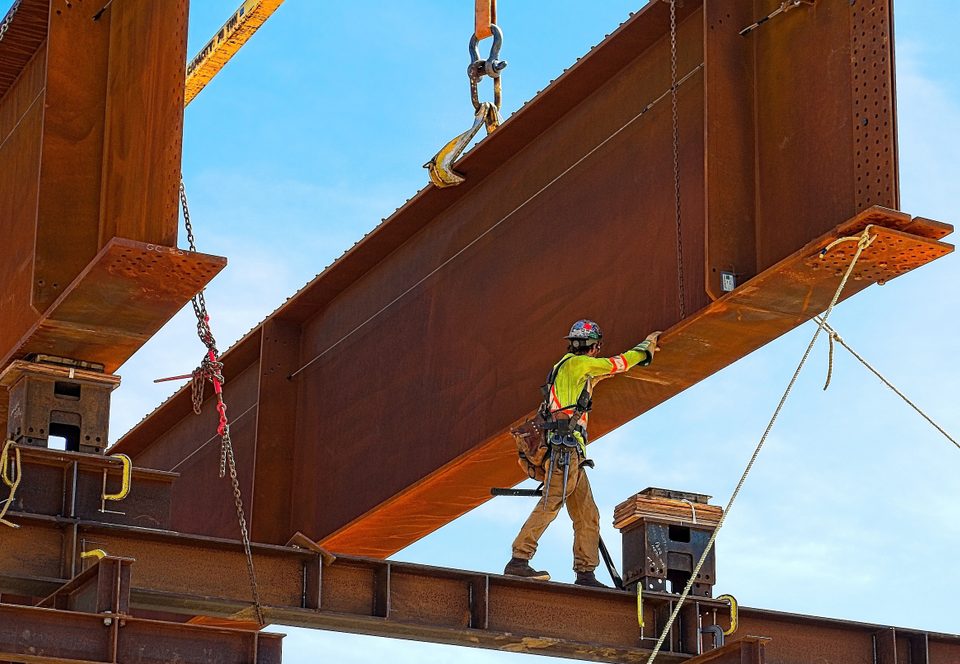Comparing Steel and Titanium for a Project

Steel Building Construction Timeline Factors
November 28, 2023
Value of Steel in the Automotive Industry
December 26, 2023There are certain metal types that share some characteristics and may even be used in some of the same kinds of applications, but also differ in important ways that must be considered. Steel and titanium are a great example of this sort of thing – while they’re sometimes used in similar applications and have some of the same benefits, they also have key differences.
At Wasatch Steel, we’re here to offer an unmatched range of steel products and steel services to clients around Salt Lake City and nearby areas of Utah, plus expertise on these and similar metals. What are the basic differences between steel and titanium, and which might be right for your project needs? Here are some simple facts.
Basic Composition
Firstly, from a very broad standpoint, steel refers to an iron-carbon alloy that contains less than 2% carbon. Steel allows will be mixed with some other elements, which can improve the properties of steel as needed.
Titanium also has an alloy category, but it is not very different from pure titanium. Titanium alloys commonly contain around 4-6% aluminum and around 2% molybdenum. In both cases, these are metals that have been used for centuries. Steel is the most common metal used in construction, while titanium has more specialized uses, such as aerospace engineering or medical devices.
Our next several sections will go over some specific properties and how each of these metals stacks up within them.
Hardness
One area where steel is clearly superior is hardness. Steel has a greater overall hardness, especially its carbon content. Titanium alloys typically have a Rockwell C rating of less than 40, while steel can easily surpass this figure depending on the type.
However, there are exceptions. Some titanium alloys such as Ti-6Al-4V with heat treatment can achieve higher levels of hardness and strength that approach those of some steels.
Corrosion Resistance
Both of these metals are highly resistant to corrosion, especially compared to others like aluminum or copper. But titanium is the clear frontrunner in this category. Titanium has an oxide layer on its surface that makes it virtually impervious to most forms of corrosion, whether from water, air, or harsh chemicals.
But steel can be alloyed with other elements to make it more resistant as well – examples include stainless steel or galvanized steel. In particular, titanium is more prone to galvanic corrosion when paired with other metals such as copper or aluminum.
Density
Steel is much denser than titanium, which means that a piece of steel will weigh more than the same size and shape made from titanium. However, this density also makes steel stronger – per unit volume – than titanium. So, for instance, a steel bolt can do the same job as a larger titanium bolt might. If saving weight is critical to your project, choose titanium over steel.
Long-Term Durability
One area where it’s tough to pick a winner, largely because both options are robust and tough, is durability. Steel is often praised for its longevity, with some steel products lasting hundreds of years before replacement becomes a concern. Titanium, meanwhile, can withstand extreme temperatures and holds up incredibly well in harsh environments.
But the key difference maker here could be maintenance. Due to titanium’s anti-corrosive properties, it may require less care over time than steel – this depends on the application, of course.
Elasticity
Most steel alloys tend to be much more elastic than titanium alloys, which means that a steel structure will be able to spring back into its original shape even after force is applied. Titanium may deform more easily under pressure. This property makes steel a great option for applications such as bridges or high-rise buildings that need to withstand significant structural stress.
Temperature Resistance
Another important area, depending on your project’s needs: high temperature resistance. Titanium can withstand significantly higher temperatures than steel before it begins to deform or melt. This makes titanium a go-to choice for applications such as aircraft turbines or engines that will encounter extreme heat.
Cost
Finally, there’s the question of cost. Titanium is generally much more expensive than steel, due to its scarcity and the complexity of the extraction process. However, this is offset by titanium’s longevity and durability – when considering long-term maintenance costs, titanium can sometimes be a more cost-effective option.
So which metal is right for your project? As you can see, there are pros and cons to both steel and titanium depending on specific needs and applications. If you need help determining which metal is right for you, reach out to the experts at Wasatch Steel. Our team will be happy to help you make an informed decision and provide high-quality steel products to fit your needs.



